2 Nights / 3 Days
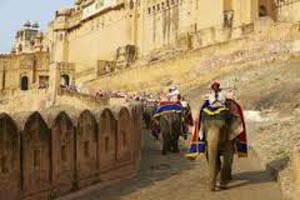
Tour Requirements
For Adults - Photo identification in the form of Voters ID / Passport / Aadhar Card / Driving Licence / Ration card
For students - Photo identification in the form of Passport / Aadhar Card / PAN card Carry original as well as 2 photocopies of school or college Photo Identity card
For Infants - Carry 2 passport sized photographs
Things to Carry
Mobile phone with appropriate sim card
Along with your necessary clothing and toiletries carry sun screen lotion, hand sanitizer, sun glasses, cap, sports shoes, umbrella / windcheater, camera etc. and woollens if needed
If you are on any medication, carry sufficient stock of the medicines with prescription
Weather
For detailed Information about weather kindly visit www.accuweather.com
Shopping
Jewellery, paintings, leatherwear, stone carving, textile, blue pottery, carpets, terracotta, wooden artefacts etc.
Places Covered
Amber Fort
Also known as Amer Fort, Amber Fort is one of the principal tourist attractions in the Jaipur and is located high on a hill. Amer Fort was built by Raja Man Singh and is known for its artistic style, blending both Hindu and Rajput elements. The aesthetic ambiance of this incredible fort is seen within its walls on a four level layout plan. The palace served as a residence for the Rajput Maharajas and their families. The Amer town itself, which is an integral and inevitable entry point to the Amer Palace, is now a heritage town. A particular attraction at Amer Fort is the “magic flower” fresco carved in marble around the mirror palace which is identified by two hovering butterfly depiction. The flower has seven unique designs of a fish tail and each is viewed by a particular way of partial hiding of the panel with hands.
Birla Mandir
The Birla Temple, built by BD Birla is the major tourist attraction in the Jaipur city. This temple is also known as Laxmi Narayan Temple as it is dedicated to Lord Vishnu and his spouse Goddess Lakshmi. This temple is located on an elevated ground at the base of Moti Dungri hill. It is one of the major attractions of Jaipur because of its remarkable features. It looks stunning and mesmerizes the onlookers when it is brightly lit in the night. Three huge domes of the temple represent three different approaches to the religion. The stained glass windows of temple depict the scenes from Hindu mythology. It is surrounded by lush green gardens which complete its magnificent look.
Jantar Mantar
The Jantar Mantar is a collection of architectural astronomical instruments, built by Maharaja Jai Singh II between 1727 and 1734. Early restoration work on the same was undertaken under the supervision of Major Arthur Garrett, a keen amateur astronomer. The name is derived from Jantar, instrument, and Mantar, formula, therefore, Jantar Mantar means literally 'calculation instrument'. Maharaja constructed a total of five such facilities at different locations, including the ones at Delhi and Jaipur. The Jaipur observatory is the largest and best preserved. It has been declared a World Heritage Site by UNESCO.
Hawa Mahal
Hawa Mahal, also known as Palace of the Breeze was built in 1799 AD by Maharaja Sawai Pratap Singh and designed by Lal Chand Ustad in the form of the crown of Krishna. Its unique five-storied exterior is also akin to the honeycomb of the beehive with its 953 small windows called jharokhas. The original intention of the lattice was to allow royal ladies to observe everyday life in the street below without being seen. Built of red and pink sandstone, the palace is situated in the heart of Jaipur. It is a part of the City Palace and extends to the women's chambers. It particularly looks outstanding when viewed early in the morning, lit with the golden light of sunrise.
Albert Hall
Albert Hall Museum is the oldest museum in the state of Rajasthan. The building was designed by Sir Samuel Swinton Jacob and was opened as a public museum in 1887. It has a rich collection of paintings, carpets, ivory, stone, metal sculptures, colorful crystal works, etc. It is situated in the Ram Niwas Garden and is a fineexample of Indo-Saracenic architecture. It is named after King Albert Edward VII. Maharaja Ram Singh initially wanted this building to be a town hall, but his successor decided it to be a museum for the art of Jaipur.
City Palace
The City Palace was the seat of the Maharaja of Jaipur and it has the Chandra and Mubarak Mahal palaces and other buildings in its complex. The Chandra Mahal palace is now a museum but most of it is still a royal residence. The palace complex is located in the north-east of the grid patterned Jaipur city and incorporates an impressive array of courtyards, gardens and buildings. The palace was built between 1729 and 1732, by Sawai Jai Singh II, the ruler of Amber. The Maharani Palace, Baggi Khana are other important parts of the complex. The Govind Dev Ji temple is a part of the complex and its ceiling is ornamented in gold.
Jal Mahal
Jal Mahal, also known as Water Palace is located in the middle of the Man Sagar Lake in Jaipur city. The palace and the lake around it were renovated by Maharaja Jai Singh II of Amber. Recently, it has got an eye-popping makeover. Traditional boat-makers have crafted the Rajput style wooden boats and a gentle splashing of oars on the clear lake waters takes visitors to Jal Mahal. Visitors move past decorated chambers on the first floor to climb all the way up to the Chameli Bagh. Across the lake, Aravalli hills can be viewed dotted with temples and ancient forts, along with Jaipur, on the other side.
Taj Mahal
The Taj Mahal was built by Mughal emperor Shah Jahan in memory of his third wife, Mumtaz Mahal and is regarded by many, as the finest example of Mughal architecture. The Taj Mahal is a white marble mausoleum located in Agra, widely recognized as ‘the Jewel of Muslim Art’ in India and is one of the universally admired masterpieces of the world heritage. Taj Mahal has an architectural style that combines elements from Persian, Ottoman Turkish and Indian architectural styles. The Taj Mahal is surrounded by beautiful gardens. Its beauty attracts numerous Indian and international tourists to visit this site.
Agra Fort
Agra Fort: Agra Fort is located, about 2.5 km north-west of the Taj Mahal. It served as the royal residence of Mughals for generations, the fort was the battle site during the Indian rebellion of 1857. The fort has a semicircular plan, its chord lies parallel to the river while its walls are seventy feet high. Double ramparts have massive circular bastions at intervals, with battlements, embrasures, and string courses.Four gates were provided on its four sides, one of them, Khizri gate opens to the river. The Delhi gate is not accessible to the public.
Fatehpur Sikri
Fatehpur Sikri is a city and built near the much older Sikri. Akbar named the city, Fatehabad, with Fateh, a word of Arabic origin in Persian, meaning "victory"; it was later called Fatehpur Sikri. The city served few Mughal kings as their capital. According to historians, Akbar, the great Mughal emperor took great interest in the building of Fatehpur Sikri and also dictated its architectural style. Akbar planned the complex of building on Persian principles. The Easy availability of sandstone in the neighboring areas also meant that all the buildings here were made of the red stone. The imperial Palace complex of city consists of independent pavilions arranged in formal geometry on a piece of level ground.
Brahma Temple At Pushkar
The Brahma Temple is located at Pushkar which is about 11 km from Ajmer. The lake at Pushkar is believed to be created by Lord Brahma and has the same sanctity for Hindus, as Manasarovar in Tibet. It is interesting to note that Pushkar is the only place in northern India where the temple of Lord Brahma exists. The temple is believed to be 2000 years old while the present temple arrangement dates to the 14th century. The temple is mainly built of marble and stone stabs. The temple sanctum sanctorum holds the central images of Brahma and second consort Gayatri. A festival dedicated to Lord Brahma is held on the Kartik Purnima and the place is visited by a large number of pilgrims during this festival.
Dargah Ajmer
Ajmer has a historic importance as Mohammed Ghazni invaded the city many times from Afghanistan. Later, it became a favorite residence of the Mughals. It is an important place for Muslim Pilgrims. The Dargah is the tomb of Sufi Saint - Khwaja Moinuddin Chisti, who came to Ajmer from Persia in the year 1192. The Dargah was completed by Mughal Emperor Humayun. The main gate to the shrine is the Nizam Gate, followed by Shahjahani Gate, which was erected by emperor Shah Jahan. The annual Urs festival commemorates the death anniversary during the first six days of the Rajab. In honor of the saint, the Qawwali concerts are held reciting Chishti's own works during the Urs. A large number of devotees are attracted to the shrine during the festival.
Mathura (Birth Place of Lord Krishna)
Krishna Janmabhoomi marks the original spot of the birth of Lord Krishna in the Katra Keshav Deo Temple. The main shrine leads to a small room with a raised platform, and pictures of Krishna and tales of his birth adorning the walls. According to legends, the prison cell, in the temple premise is the exact place where Lord Krishna was born. The stone walled cell is reminiscent of the cruelty of Kansa. Many statues and sculptures from the bygone era were found on excavating the site. Since the prison cell is turned into the present beautiful temple, lakhs of devotees throng the temple during Janmashtami, every year.
06:00 Hrs. Departure to Jaipur
12:00 Hrs. Arrival at Jaipur, Jaipur sight seeing upto
17.30 Hrs. Places Coverd : Birla Mandir, Albert Hall, Hawa Mahal, Jantar Mantar, City Palace, Jal Mahal, Amber Fort (Mirror Palace) Note: Those who are interested to see the famous theatre "Raj Mandir" can go on their own after completion of the sight seeing tour.
07:00 Hrs. Departure to Ajmer 131 Kms / 3 hrs, Places Coverd : Ajmer Dargah, then to Pushkar 11 kms. (here visit Brahma Temple) it is interesting to note that Pushkar is the only place in the world, where the temple of LordBrahma exists.
Night Stay:- Jaipur
05:00 Hrs. Departure to Agra (240 kms / 5 hrs)
10:30 Hrs. Enroute visit Fatehpur Sikri Arrival at Agra. Sight seeing upto 16:00 Hrs., Places Covered: Taj Mahal, Agra Fort
16:00 Hrs. Departure to Mathura (56 kms / 1.5 hrs)
17:00 Hrs. Arrival at Mathura (See the Birth Place of Lord Krishna- Jail) and ISKON Temple
19:00 Hrs. Departure to Delhi (145 kms / 3.5 hrs)
22:00 Hrs. Arrival at Delhi
Call Trip was founded in the year 2016 with the motive to offer undoubted assurance and absolute ease to travel. Our company delivers world-class, hassle-free holidaying in India, thereby helping clients to enjoy the bliss of travelling. Mr. Swatantra Sharma and Mr. Ganesh Kumar together serve the company as its CEOs. Their motto is to take this company to unimaginable heights of success. The company is based out in Dwarka, New Delhi (India). Read More...

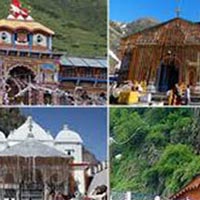 12D/11N
12D/11N
Super Saver Char Dham Yatra Tour
New Delhi - Haridwar - Barkot - Uttarkashi - Rudraprayag - Srinagar - Sitapur - Cha..
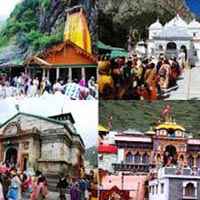 12D/11N
12D/11N
New Delhi - Haridwar - Barkot - Uttarkashi - Chamoli - Rudraprayag - Rishikesh - Pi..
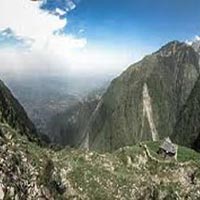 6D/5N
6D/5N
Pathankot - Dharamshala - Dalhousie - Khajjiar - Chamba
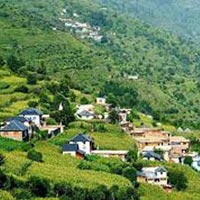 6D/5N
6D/5N
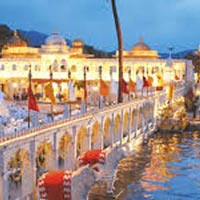 3D/2N
3D/2N
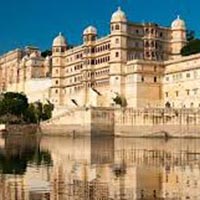 3D/2N
3D/2N
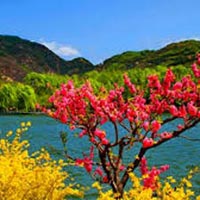 4D/3N
4D/3N
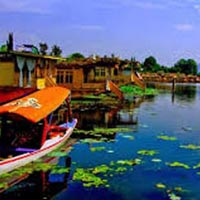 5D/4N
5D/4N
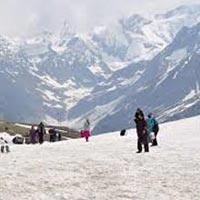 6D/5N
6D/5N
Magnificent Shimla Manali Tour
New Delhi - Shimla - Kufri - Manali - Rohtang Pass
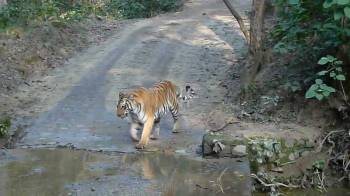 3D/2N
3D/2N
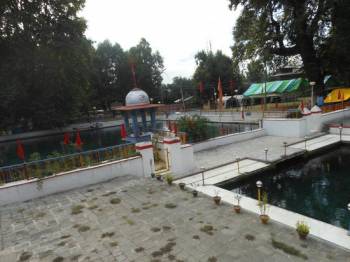 3D/2N
3D/2N
Srinagar ,Pahalgam , Gulmarg, Sonamarg, ..
Srinagar - Pahalgam - Gulmarg - Sonamarg
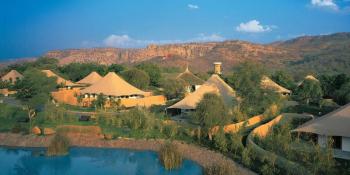 3D/2N
3D/2N
 3D/2N
3D/2N
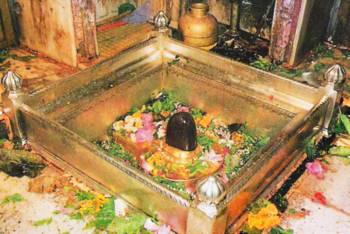 3D/2N
3D/2N
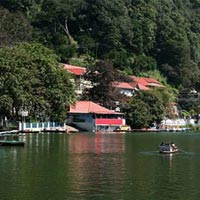 3D/2N
3D/2N
 3D/2N
3D/2N
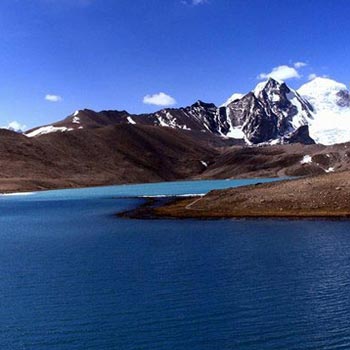 3D/2N
3D/2N
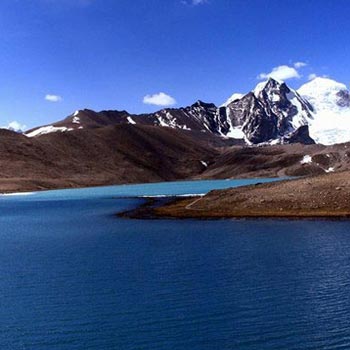 3D/2N
3D/2N
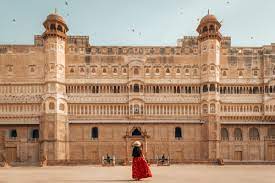 13D/12N
13D/12N
Rajasthan Tour Package 12 Night - 13 Days
Ajmer - Bikaner - Jaipur - Jaisalmer - Jodhpur - Mount Abu - Pushkar - Udaipur
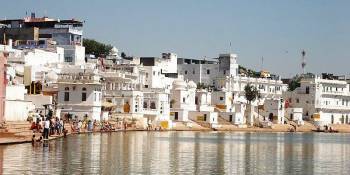 13D/12N
13D/12N
12 Nights Rajasthan Package From Jaipur
Ajmer - Bikaner - Jaipur - Jaisalmer - Jodhpur - Mount Abu - Pushkar - Udaipur
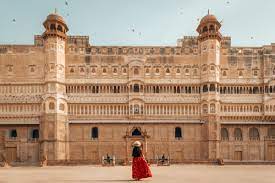 13D/12N
13D/12N
Rajasthan Tour Package 12 Night - 13 Days
Ajmer - Bikaner - Jaipur - Jaisalmer - Jodhpur - Mount Abu - Pushkar - Udaipur
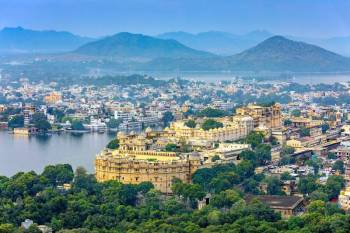 12D/11N
12D/11N
11 Nights 12 Days - Delhi Agra Rajasthan
New Delhi - Mathura - Agra - Jaipur - Ajmer - Pushkar - Udaipur - Mount Abu - Ranak..
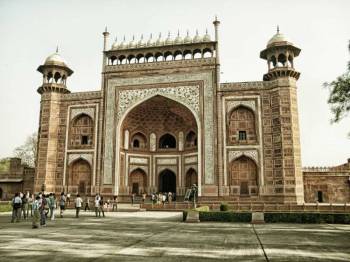 11D/10N
11D/10N
10 Nights Uttar Pradesh Tour Package Fro..
New Delhi - Agra - Prayagraj - Lucknow - Mathura - Varanasi - Ayodhya - Vrindavan -..
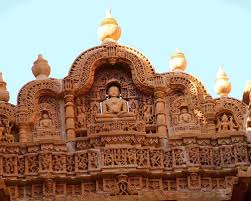 10D/9N
10D/9N
9 Night - 10 Days Rajasthan Tour Package
Ajmer - Jaipur - Jaisalmer - Jodhpur - Mount Abu - Udaipur
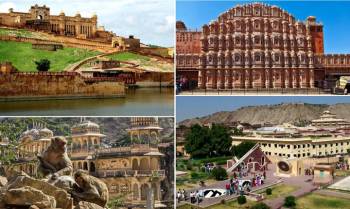 10D/9N
10D/9N
Ajmer - Udaipur - Mount Abu - Jodhpur - ..
Ajmer - Jaisalmer - Jodhpur - Mount Abu - Udaipur - Jaipur
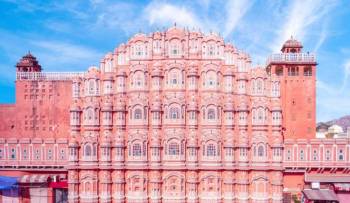 9D/8N
9D/8N
9 Days Jaipur - Ajmer - Udaipur - Mount ..
Ajmer - Jaipur - Jaisalmer - Jodhpur - Mount Abu - Udaipur
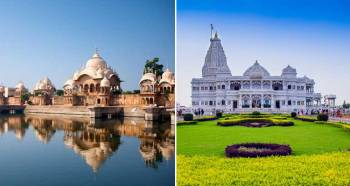 7D/6N
7D/6N
6 Night - 7 Days Uttar Pradesh Tour Pack..
Prayagraj - Mathura - Varanasi - Ayodhya - Vrindavan - Chitrakoot